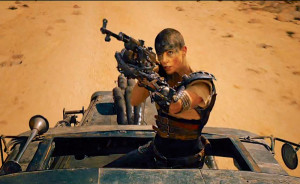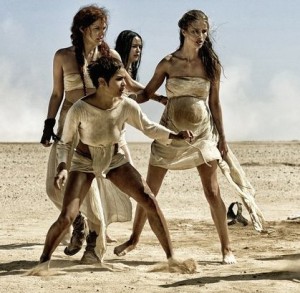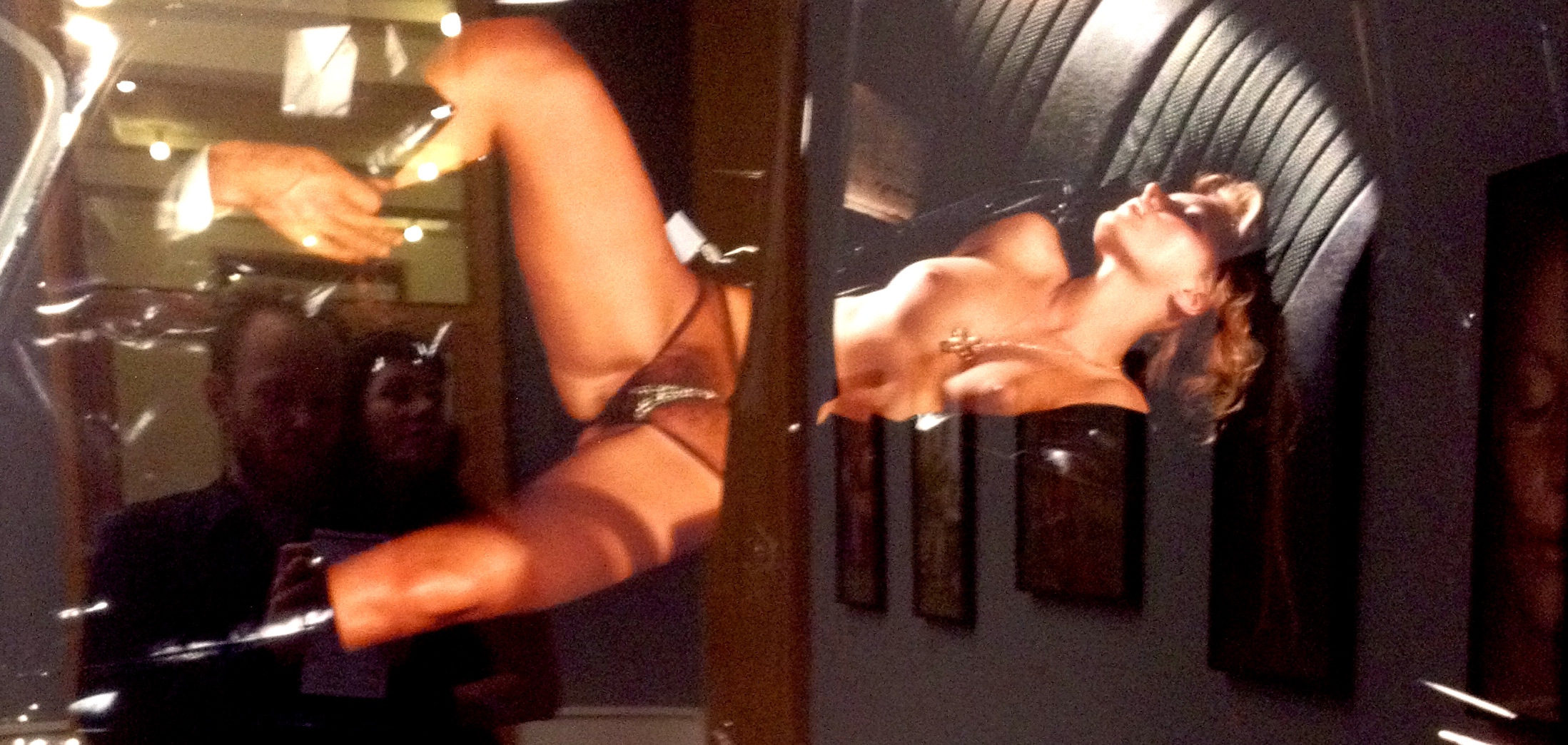 Multiple news sources are talking about the female-driven storyline of the new Mad Max film, many using the word “feminism” to describe its seeming departure from “traditional” action movie narratives by focusing much of the screen time on the film’s strong female lead character, Imperator Furiosa, played by Charlize Theron. ‘Mad Max: Fury Road’ Is the Feminist Action Flick You’ve Been Waiting For came early from David Perry at VICE, followed by the inevitable backlash—is the word “feminism” ever used without backlash?—in the form of a post at Return Of Kings (the “blog for heterosexual, masculine men“), by men’s rights activist Aaron Clarey titled, Why You Should Not Go See “Mad Max: Feminist Road.” Clarey wrote in response to this article, which referenced an interview in Esquire where Fury Road actress Rosie Huntington-Whiteley talks about the fact that Eve Ensler, after being invited by director George Miller, acted as a consultant on the movie. (Yes, that Eve Ensler. Truthfully, the addition of Eve Ensler to any project would be cause to label it, at least partly, “feminist.”)
Multiple news sources are talking about the female-driven storyline of the new Mad Max film, many using the word “feminism” to describe its seeming departure from “traditional” action movie narratives by focusing much of the screen time on the film’s strong female lead character, Imperator Furiosa, played by Charlize Theron. ‘Mad Max: Fury Road’ Is the Feminist Action Flick You’ve Been Waiting For came early from David Perry at VICE, followed by the inevitable backlash—is the word “feminism” ever used without backlash?—in the form of a post at Return Of Kings (the “blog for heterosexual, masculine men“), by men’s rights activist Aaron Clarey titled, Why You Should Not Go See “Mad Max: Feminist Road.” Clarey wrote in response to this article, which referenced an interview in Esquire where Fury Road actress Rosie Huntington-Whiteley talks about the fact that Eve Ensler, after being invited by director George Miller, acted as a consultant on the movie. (Yes, that Eve Ensler. Truthfully, the addition of Eve Ensler to any project would be cause to label it, at least partly, “feminist.”)
 Not surprisingly, other sources quickly picked up on the story about the “proposed boycott,” with VICE following up on the backlash against the backlash, reaching out to Clarey with “some questions about the boycott, Charlize Theron’s mechanical arm, and whether or not explosions were gendered.” Also included is a video from self-described asshole Clarey where he eloquently (no, not really) talks about the viral popularity of his original post. Interestingly, one of Clarey’s first points is, “No, I’m not a men’s rights activist.” This attitude is also taken by Return of Kings editor Roosh Valizadeh when he wrote about the avalanche of mainstream media anger that accompanied Clarey’s article (while nicely rounding up links to articles that have picked the story). Additionally, Valizadeh had issue with news outlets consistently labeling them a “men’s rights site”—much in the same way people often have issue being labeled a “feminist.”
Not surprisingly, other sources quickly picked up on the story about the “proposed boycott,” with VICE following up on the backlash against the backlash, reaching out to Clarey with “some questions about the boycott, Charlize Theron’s mechanical arm, and whether or not explosions were gendered.” Also included is a video from self-described asshole Clarey where he eloquently (no, not really) talks about the viral popularity of his original post. Interestingly, one of Clarey’s first points is, “No, I’m not a men’s rights activist.” This attitude is also taken by Return of Kings editor Roosh Valizadeh when he wrote about the avalanche of mainstream media anger that accompanied Clarey’s article (while nicely rounding up links to articles that have picked the story). Additionally, Valizadeh had issue with news outlets consistently labeling them a “men’s rights site”—much in the same way people often have issue being labeled a “feminist.”
So what’s the take-away from all this? Other than any exploration of feminism in popular culture, and in particular a genre—action movies—usually aimed at a male audience, more often than not quickly deteriorates into into questions of semantics? Is it simply a game of journalistic ping-pong, with writers aiming their not-feminist and not-men’s-rights opinions at each other?
 Bonus video: Charlize Theron responded to being asked, “Is there something feminist about this film?” at Cannes—and where her character’s rage comes from.
Bonus video: Charlize Theron responded to being asked, “Is there something feminist about this film?” at Cannes—and where her character’s rage comes from.
Spoiler alert: The movie is amazing.
